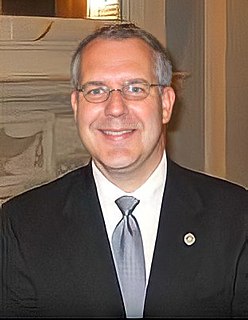A Quote by Marvin Ammori
In the post-industrial economy, ideas and great minds often provide far greater return on investment than any other resources or capital investments.
Related Quotes
Unlike return, however, risk is no more quantifiable at the end of an investment that it was at its beginning. Risk simply cannot be described by a single number. Intuitively we understand that risk varies from investment to investment: a government bond is not as risky as the stock of a high-technology company. But investments do not provide information about their risks the way food packages provide nutritional data.
Getting the economy back on its feet is properly viewed as an investment in future prosperity. When businesses and consumers confront attractive investment opportunities, often the only way to seize them is by borrowing. The same is true for government. Contrary to the pronouncements of critics of economic stimulus, these investments will not impoverish our grandchildren. Continuing to allow the economy to languish in recession is the surest way to impoverish them.
In the early 19th century, when the country was transitioning from an agrarian to an industrial economy, we subsidised transportation and created a national bank. In the post-WWII era, we as a federal government made strategic investments in emerging technologies including microelectronics, telecommunications and biotechnology.
That is why all great men are modest: they consistently measure themselves not in comparison to other people but to the idea of perfection ever present in their minds, an ideal infinitely clearer and greater than any common people have, and they also realize how far they are from fulfilling their ideal.
The modern welfare state, highly touted as soaking the rich to subsidize the poor, does no such thing. In fact, soaking the rich would have disastrous effects, not just for the rich but for the poor and middle classes themselves. For it is the rich who provide a proportionately greater amount of saving, investment capital, entrepreneurial foresight, and financing of technological innovation that has brought the Unites States to by far the highest standard of living - for the mass of the people - of any country in history.
A realistic definition of risk recognizes the potential loss of capital through inflation and taxes, and would include at least the following two factors: The probability that the investment you chose will preserve your capital over the time you intend to invest your funds. The probability the investments you select will outperform alternative investments for this period.
Contrary to a tenacious myth, France is not owned by California pension funds or the Bank of China, any more than the United States belongs to Japanese and German investors. The fear of getting into such a predicament is so strong today that fantasy often outstrips reality. The reality is that inequality with respect to capital is a far greater domestic issue than it is an international one.
What is that which can never die It is that faithful force that is born into us that one that is greater than us that calls new seed to the open and battered and barren places so that we can be resown. It is this force in its insistence in its loyalty to us in its love of us in its most often mysterious ways that is far greater far more majestic and far more ancient than any heretofore ever known.




































